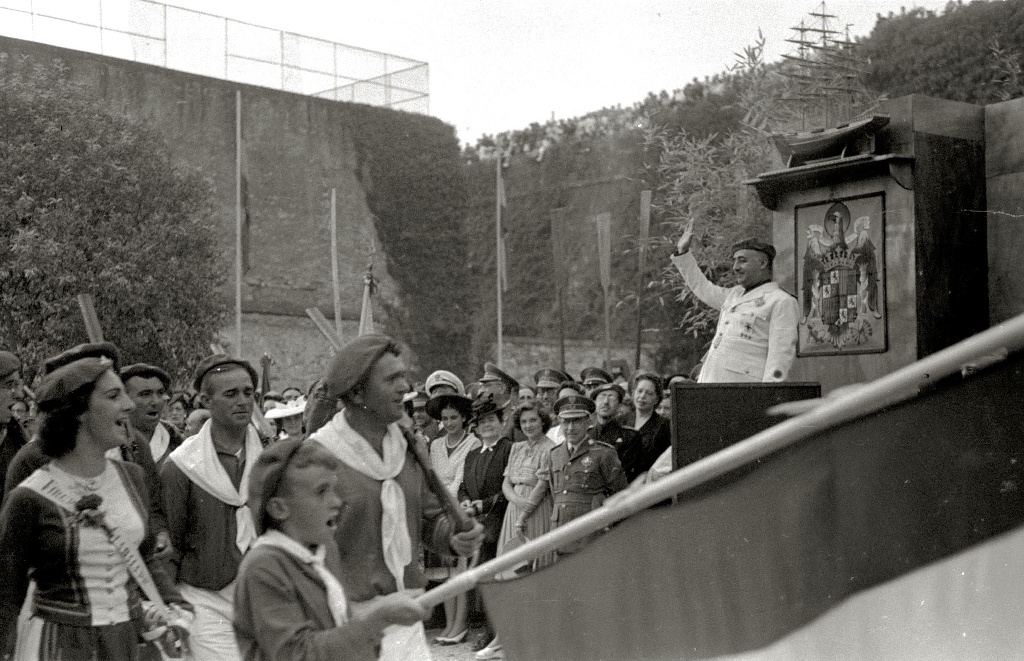Skift Take
Plenty of Spanish descendants in Latin America were waiting for this law. A family legacy can now become complete, and also allow them longer trips through Europe.
A new law that just passed in Spain related to the long reign of former dictator Francisco Franco will allow more Spanish descendants to apply for citizenship. This is useful for immigrants residing in the country. And for the diaspora, it could mean longer trips to Europe without need for a visa.
The Democratic Memory Law is a reparation initiative for the long-term consequences of Franco’s dictatorship. It will recognize citizenship rights to victims of exile and their descendants. For the first time, grandchildren of Spanish exiles can request it without age limitations.

Spanish officials are expecting “avalanches” of citizenship applications from Argentina, Cuba and México. This is important as the Americas — counting the U.S. — brought in almost four million tourists in the first eight months of 2022, according to the Spanish Statistics Institute (INE). Another country that received exiles was France, the second biggest source market, with almost seven million visitors until August.
Maria Àngels Serra, partner at Chias Marketing, believes the impact of this law on tourism won’t be massive in arrivals, but Spanish could destinations use it to aim at markets that received large amounts of exiles: “There’s an interesting thread to pull there, to promote what we refer to as ‘turismo de memoria (memory tourism)’.”
Getting a European citizenship could also aid digital nomads to choose destinations in the old continent. Selina, the hotel chain aimed at millennials and Gen Zs, boasts over 18 locations in Europe, with Spain and Germany on deck in the near future. Earlier this year, it also partnered with the #workanywhere movement to run a study to help guide policy aimed at remote workers across the European Union.
When asked about this law, Selina’s senior vice president and head of corporate development Sam Khazary said: “With movements and policies like these continuing to take center stage, the remote work movement will continue to grow”, Khazary added.
“The reading of the law has mostly social and historical connotations. Through the optics of tourism, it may have more of an impact from the offer side than in demand,” argued David Mora, a Spanish tourism consultant and international speaker. “Spain is an aged country, with a progressive labor disaffection towards the tourism sector and a need of qualified and experienced workers. Along with training, the potential arrival of such workers from third party countries could help with that deficit.”
His view coincides with Adecco’s last report on the Spanish hospitality labor market: “One of the main challenges is the difficulty to find qualified workers, since a segment of professionals opted for reinventing themselves in sectors with better work conditions.”
An ‘Avalanche’ — Not a Wave
Juan Alvar Merino Cubillo, deputy consul at the Spanish consulate in Buenos Aires, told Skift that in the month prior to this law becoming effective, the embassy received between 800 and a 1,000 emails a day solely inquiring about this possibility, when the regularly they get under 300 a day counting all issues. As a precedent of what to expect, he mentioned a similar measure, the 2007 Historic Memory Law, through which over 60,000 Argentines and 193,000 Cubans applied for citizenship.
Immigration lawyers are also seeing a rise in demand. Viviana Echeverria, general manager at Echeverría Abogados, told Skift inquiries on Spanish citizenship issues from the U.S., Cuba, Argentina, Mexico and Colombia increased at her firm by 30 percent. “We’ve been waiting for this for over three years. We have some clients with their paperwork ready to be presented. They are mainly people left out of the Historic Memory Law in 2007”, she said.
Carine Saenz, a lawyer who specializes in migrations rights, said at her firm inquiries increased roughly by 40 percent, and added that some of them came from people who lost their citizenship. In spite of having operations in Spain, Portugal, Italy and Brazil, most of the inquiries at her firm also came from Latin America.
But neither Saenz or Echeverria believe the new framework will cause an immigration wave in Europe, as their clients are seeking this citizenship mostly as reparation of their family’s legacy.
Jordi Font Agulló, a modern and contemporary history professor at Universitat Autònoma de Barcelona (UAB), agrees. He believes the benefits immigrants may obtain from this law are a collateral effect, but “it will also contribute to a more advantageous situation when traveling to Europe.”
He said about 180,000 Spanish civil war exiles went to France and there’s not a large tradition of people moving in from that country. Secondly, he believes that “even if descendants of those who went to Mexico and Chile acquire the citizenship as a symbolic gesture, this will not cause a massive movement to Spain.” And regarding descendants in Argentina, Uruguay, Venezuela and Cuba, the UAB professor advised not to confuse migration for economic reasons with this reparation law.
The Daily Newsletter
Our daily coverage of the global travel industry. Written by editors and analysts from across Skift’s brands.
Have a confidential tip for Skift? Get in touch
Tags: immigration, spain, tourism
Photo credit: A new law passed in Spain related to reparations from the era of dictator Franciso Franco may create a new wave of immigration travel. shadr / VisualHunt
